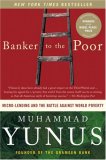Summary | Excerpt | Reviews | Beyond the Book | Readalikes | Genres & Themes | Author Bio

Critics' Opinion:
Readers' Opinion:
First Published:
Jun 1999, 258 pages
Paperback:
Oct 2003, 288 pages
 Book Reviewed by:
Book Reviewed by:
BookBrowse Review Team
Buy This Book
Salam and I devoured any books and magazines we could get our hands on.
Detective thrillers were my favorite. I even wrote one, a complete whodunit, at
the age of twelve. But it was not easy to keep our thirst for reading satiated.
To meet our needs, Salam and I learned to improvise, buy, borrow, and steal. For
instance, our favorite children’s magazine, Shuktara, held a yearly contest. The
winners of the contest received a free subscription and had their names printed
in the magazine. I picked one of the winners at random and wrote to the editor:
Dear Sir,
I am so-and-so, a contest winner, and we have moved. From now on, please mail my
free subscription to Boxirhat Road Number —.
I did not give our exact address, but a neighbor’s, so that my father would not
see the magazine. Every month, Salam and I kept our eyes peeled for our free
copy. It worked like a dream.
We also spent part of every day in the waiting room of our family physician, Dr.
Banik—just around the corner—reading the various newspapers he subscribed to.
This freelance reading stood me in good stead over the years. Through primary
and secondary school, I was often at the top of my class.
In 1947, when I was seven, the “Pakistan movement” reached its peak. Areas of
India with Muslim majorities were fighting to become an independent Muslim
state. With its Muslim majority, we knew that Chittagong would be included in
Pakistan, but we were not sure what other areas of Muslim Bengal would be
included or what exact boundaries would be drawn.
Friends and relatives argued endlessly at 20 Boxhirat Road about the future of
an independent Pakistan. We all realized it would be a most curious country,
with its western and eastern halves separated by more than one thousand miles of
Indian territory. My father, a devout Muslim, had many Hindu friends and
colleagues who came to our house, but even as a child I sensed the mistrust
between the two religious groups. On the radio I heard about the violent riots
between Hindus and Muslims. Mercifully, there was little of this in Chittagong.
My parents were deeply committed to partition from the rest of India. When my
little brother Ibrahim started to speak, he called white sugar, which he liked,
“Jinnah sugar,” and brown sugar, which he did not like, “Gandhi sugar.” Mohammed
Ali Jinnah was the leader of the Pakistan partition movement, and Gandhi, of
course, wanted to keep India whole. At night Mother mixed Jinnah, Gandhi, and
Lord Louis Mountbatten into our bedtime stories. And my brother Salam, though
only ten, envied the bigger boys in the neighborhood who carried the green flag
with the white crescent and star and chanted, “Pakistan Zindabad” (“Long live
Pakistan”) in the street.
At midnight on August 14, 1947, the Indian subcontinent, which had been under
British rule for nearly two centuries, was granted its independence. I recall it
all as if it were yesterday. The whole city was decorated with flags and green
and white festoons. Outside I could hear the blaring of political speeches,
interrupted every so often by the chant, “Pakistan Zindabad.” By midnight our
street was crammed with people. We set off fireworks from the rooftop. All
around I could see the silhouettes of our neighbors staring up as the exploding
fireworks filled the night sky. The whole town throbbed with excitement.
As midnight approached, Father led us down into Boxhirat Road. Though he was not
a political activist, he had joined the Muslim League National Guard as a
gesture of solidarity, and that night he proudly wore his guard uniform,
complete with the characteristic “Jinnah cap.” Even my younger siblings,
two-year-old Ibrahim and little baby Tunu, were with us. Exactly at midnight,
the electricity was switched off, and the entire city was plunged into darkness.
The next moment, when the lights came back on, we were a new country. The
roaring slogan resounded again and again, from every part of
Chittagong—“Pakistan Zindabad! Pakistan Zindabad!” I was seven and this was the
first shot of national pride I had felt in my veins. It was intoxicating.
Excerpted from Banker to the Poor by Muhammad Yunus Copyright © 1998 by Muhammad Yunus. Excerpted by permission of the publisher. All rights reserved. No part of this excerpt may be reproduced or reprinted without permission in writing from the publisher.





The House on Biscayne Bay
by Chanel Cleeton
As death stalks a gothic mansion in Miami, the lives of two women intertwine as the past and present collide.

The Flower Sisters
by Michelle Collins Anderson
From the new Fannie Flagg of the Ozarks, a richly-woven story of family, forgiveness, and reinvention.

The Funeral Cryer by Wenyan Lu
Debut novelist Wenyan Lu brings us this witty yet profound story about one woman's midlife reawakening in contemporary rural China.
Your guide toexceptional books
BookBrowse seeks out and recommends the best in contemporary fiction and nonfiction—books that not only engage and entertain but also deepen our understanding of ourselves and the world around us.